They stand at the centre of Canada’s strategy to position the country as a global leader in research and innovation. The Canada Research Chairs (CRC) program recognizes scholars whose work has the potential to transform understanding and improve lives — and this fall, ��������app is celebrating 12 new and renewed Chairs whose research is shaping a more sustainable, just, and resilient future.
The was made Wednesday (October 22) by the Honourable Mélanie Joly, federal minister of industry, as part of a national investment of more than $690 million in science and research funding.
��������app’s CRCs delve into the systems that shape our planet and our place within it. Their work stretches from the Arctic’s shifting legal seascape to viral epidemics emerging in Africa, from the cells that spark neurodegeneration to the data that can help sustain our soils. They are reimagining how energy and water intertwine, how art and identity heal, and how equity can be built into the structures of health and governance.
These researchers are turning discovery into impact.
“Our CRCs reflect the way ��������app researchers are solving real problems faced by Nova Scotians, Canadians, and people around the world,” says Dr. Graham Gagnon, acting vice-president research and innovation. “Whether it’s developing new tools for sustainable oceans, building systems that make healthcare more equitable, or helping communities adapt to climate change, these researchers are turning discovery into impact.”
New Canada Research Chairs
Designing clean-energy solutions from the water up
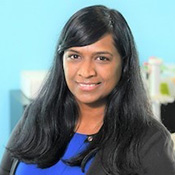 Dr. Mita Dasog, Faculty of Science
Dr. Mita Dasog, Faculty of Science
Tier 1 CRC in Advanced Design for Water-Energy Sustainability
Water and energy are deeply intertwined, and both are under pressure. Dr. Mita Dasog is developing materials that can purify water, harvest energy, and capture valuable resources in one process. Her lab designs solar-powered systems that turn seawater into fresh water and harvest minerals, convert methane emissions into useful chemicals, and produce green hydrogen from treated wastewater. By advancing these technologies, her research supports Canada’s move toward a net-zero economy while offering new tools to bring clean water and sustainable energy to communities worldwide.
about Dr. Dasog's work.
Transforming how healthcare confronts anti-Black racism
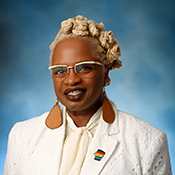 Dr. OmiSoore Dryden, Faculty of Health
Dr. OmiSoore Dryden, Faculty of Health
Tier 1 CRC in Black Health Studies
Dr. OmiSoore Dryden’s research tackles the systemic anti-Black racism that continues to harm Black lives and health in Canada. Her work centers Black and Black queer and trans voices in reshaping how health education and research are taught and practiced. Through partnerships grounded in community trust, she examines how anti-Black racism, homophobia, and transphobia intersect in care systems and explores anti-racist approaches to medical training, precision health, and policy. Her program aims to equip the next generation of researchers and practitioners to build healthcare systems that truly serve Black communities.
Learn more about Dr. Dryden's work.
Reimagining Arctic law through Indigenous leadership
��
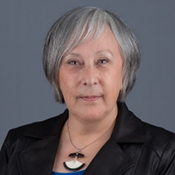 Violet Ford, Faculty of Law
Violet Ford, Faculty of Law
Tier 1 CRC in Circumpolar Indigenous Marine Governance and International Law
For Arctic and subarctic Indigenous peoples, the ocean is central to their survival, their culture and their way of life. Yet international marine legal frameworks still overlook their rights and laws. Violet Ford, a PhD candidate and associate professor in the Schulich School of Law, is the first Inuit woman lawyer in Canada and a global advocate for Indigenous rights, is leading a new effort to change that. Her “Nuliajuk Project” aims to create an Indigenous-led partnership to shape an Arctic and subarctic Marine Legal Framework that integrates arctic and subarctic Indigenous legal traditions and international law. Her work seeks to redefine how the world governs the Arctic and subarctic marine areas by setting a new standard for how international law norms regarding Indigenous rights can be achieved in legally binding instruments.
Learn more about Ford's work.
Tracking how the ocean stores carbon and when it releases it
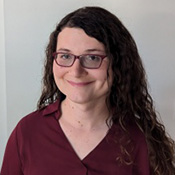 Dr. Natalya Evans, Faculty of Science
Dr. Natalya Evans, Faculty of Science
Tier 2 CRC in Observational Chemical Oceanography
As the world races to meet climate goals, Dr. Natalya Evans is studying how carbon can be safely stored in the ocean. Her research examines how agricultural waste buried in the deep sea breaks down over time, revealing which chemical conditions help keep carbon locked away. She also investigates how the acids released during this process might affect ocean chemistry and carbon exchange with the atmosphere. By understanding these dynamics, Dr. Evans’ work could help fine-tune marine carbon removal strategies to make them, effective, sustainable, and have minimal negative consequences.
Learn more about Dr. Evans's work.
Mapping Canada’s soils to secure the planet’s future
 Dr. Brandon Heung, Faculty of Agriculture
Dr. Brandon Heung, Faculty of Agriculture
Tier 2 CRC in Digital Soil Mapping and Informatics
Healthy soils are vital for food, forests, and climate stability. Dr. Brandon Heung is building the digital infrastructure to protect them. His research combines mapping, data science, and soil spectroscopy to create a national soil database that will help farmers, foresters, and policymakers make smarter decisions. By cutting the cost of soil testing and improving access to reliable data, his work supports sustainable agriculture and carbon storage. The goal is a modern, open soil information system that helps Canada manage its land for future generations.
Learn more about Dr. Heung's work.
Renewed Canada Research Chairs
Revealing how ocean microbes shape life and climate
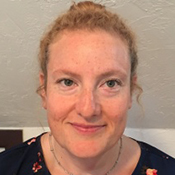 Dr. Zoe Finkel, Faculty of Science
Dr. Zoe Finkel, Faculty of Science
Tier 1 CRC in Marine Microbial Macroecology
Tiny marine phytoplankton drive the ocean’s food web and help regulate the Earth’s carbon balance. Dr. Zoe Finkel is uncovering how these microscopic organisms use proteins, DNA, and other molecules to grow, reproduce, and capture carbon. By linking lab experiments with global field studies, her research will refine the models scientists use to predict how oceans absorb carbon and sustain marine life. Her work offers a clearer picture of how microscopic life supports the planet’s largest ecosystem.
Learn more about Dr. Finkel's work.
Decoding ancient and emerging viruses to protect global health
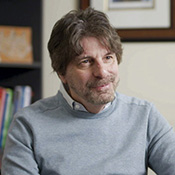 Dr. David Kelvin, Faculty of Medicine
Dr. David Kelvin, Faculty of Medicine
Tier 1 CRC in Translational Vaccinology and Inflammation
From smallpox epidemics of the past to today’s outbreaks of Mpox, Dr. David Kelvin’s research connects history, immunology, and global health. Working with collaborators in Africa and Europe, his team was among the first to sequence the virus behind the latest Mpox epidemic in the Democratic Republic of Congo. His renewed CRC will deepen investigations into how infectious diseases spread and evolve, while studies of historic outbreaks in Sardinia may reveal why some communities show susceptibility and others, resilience, against deadly pathogens.
abour Dr Kelvin's work.
Uncovering how the body’s cleanup system may hold the key to brain health
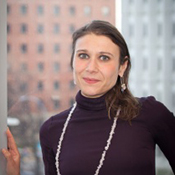 Dr. Francesca Di Cara, Faculty of Medicine
Dr. Francesca Di Cara, Faculty of Medicine
Tier 2 CRC in Human Immunology and Host-Pathogen Interactions
When the body’s internal housekeeping falters, the brain may pay the price. Dr. Francesca Di Cara studies how tiny cellular engines called peroxisomes, which process nutrients and clear waste, can trigger inflammation linked to neurodegenerative diseases like Parkinson’s. By tracing these breakdowns in fruit flies and mice, her team hopes to spot the earliest warning signs of degeneration to validate in patients and uncover ways to keep the brain’s immune defenses in balance.
about Dr.��Di Cara's work.
Building smarter systems to steer marine safety
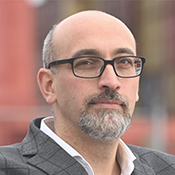 Dr. Floris Goerlandt, Faculty of Engineering
Dr. Floris Goerlandt, Faculty of Engineering
Tier 2 CRC in Risk Management and Resource Optimization for Marine Industries
Canada depends on shipping that for the import of goods and to keep communities connected. Dr. Floris Goerlandt studies how to make maritime systems safer and more resilient, from oil-spill prevention to search-and-rescue planning. His team builds data-driven tools that help industry and government weigh risks, allocate resources, and respond when things go wrong. By combining mathematical modeling with real-world collaboration, his research gives decision-makers a clearer map through the hazards of the world’s oceans.
Learn more about Dr.��Goerlandt's work.
Advancing materials that power the next generation of ocean technology
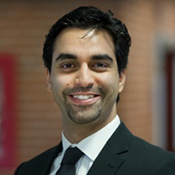 Dr. Ali Nasiri, Faculty of Engineering
Dr. Ali Nasiri, Faculty of Engineering
Tier 2 CRC in Ocean Engineering
Additive manufacturing is transforming how we build complex structures, from ships to satellites. Dr. Ali Nasiri is taking this technology further by developing new materials that can withstand the harshest marine environments. His research focuses on high-entropy alloys, combinations of metals with exceptional strength and resistance, and on new ways to produce them through advanced 3D printing. By integrating robotics, hybrid powder-wire systems, and post-print treatments, his work could unlock a new class of durable, high-performance materials for marine, defense, and aerospace industries.
Learn more about Dr. Nasiri's research.
Exploring how culture and art sustain Indigenous wellbeing
 Dr. Margaret Robinson, Faculty of Arts and Social Sciences
Dr. Margaret Robinson, Faculty of Arts and Social Sciences
Tier 2 CRC in Reconciliation, Gender, and Identity
Dr. Margaret Robinson examines how cultural traditions and art sustain wellbeing. Guided by the Mi’kmaw principle of Etuaptmumk, which values multiple ways of knowing, she blends Indigenous and Western approaches rooted in community participation. In her renewed term, she will study art as a source of resilience, lead the new Mi’kmaw Cultural Research Lab, and advance research on equity, climate adaptation, and 2SLGBTQ+ wellbeing.
Learn more about Dr. Robinson's work.
Helping Canadians age stronger through science and movement
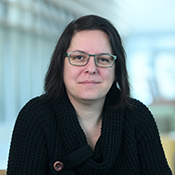 Dr. Olga Theou, Faculty of Health
Dr. Olga Theou, Faculty of Health
Tier 2 CRC in Physical Activity, Mobility and Healthy Aging
Frailty is one of the biggest challenges of an aging population. Dr. Olga Theou studies how movement can keep older adults healthy and independent. Through large-scale studies and community-based programs, she is developing personalized ways to reduce frailty and extend quality of life. Her new Healthy Aging and Frailty Hub at ��������app will unite researchers and practitioners to test and scale interventions that help Canadians stay active and engaged as they age.
Learn more about Dr. Theou's research.
��������app the CRC program
The CRC Program invests up to $311 million each year to draw and keep some of the world’s most original and accomplished researchers in Canada. It supports thinkers and innovators whose discoveries push the boundaries of knowledge, while preparing the next generation to do the same through teaching, mentorship, and collaboration.
There are two types of Chairs: Tier 1, awarded for seven years to outstanding researchers who are leaders in their fields, and Tier 2, awarded for five years to exceptional emerging researchers with potential to become future leaders. Each Tier 1 Chair brings $1.4 million in federal investment to ��������app, while Tier 2 Chairs receive $600,000 for new appointments and $500,000 for renewals.

